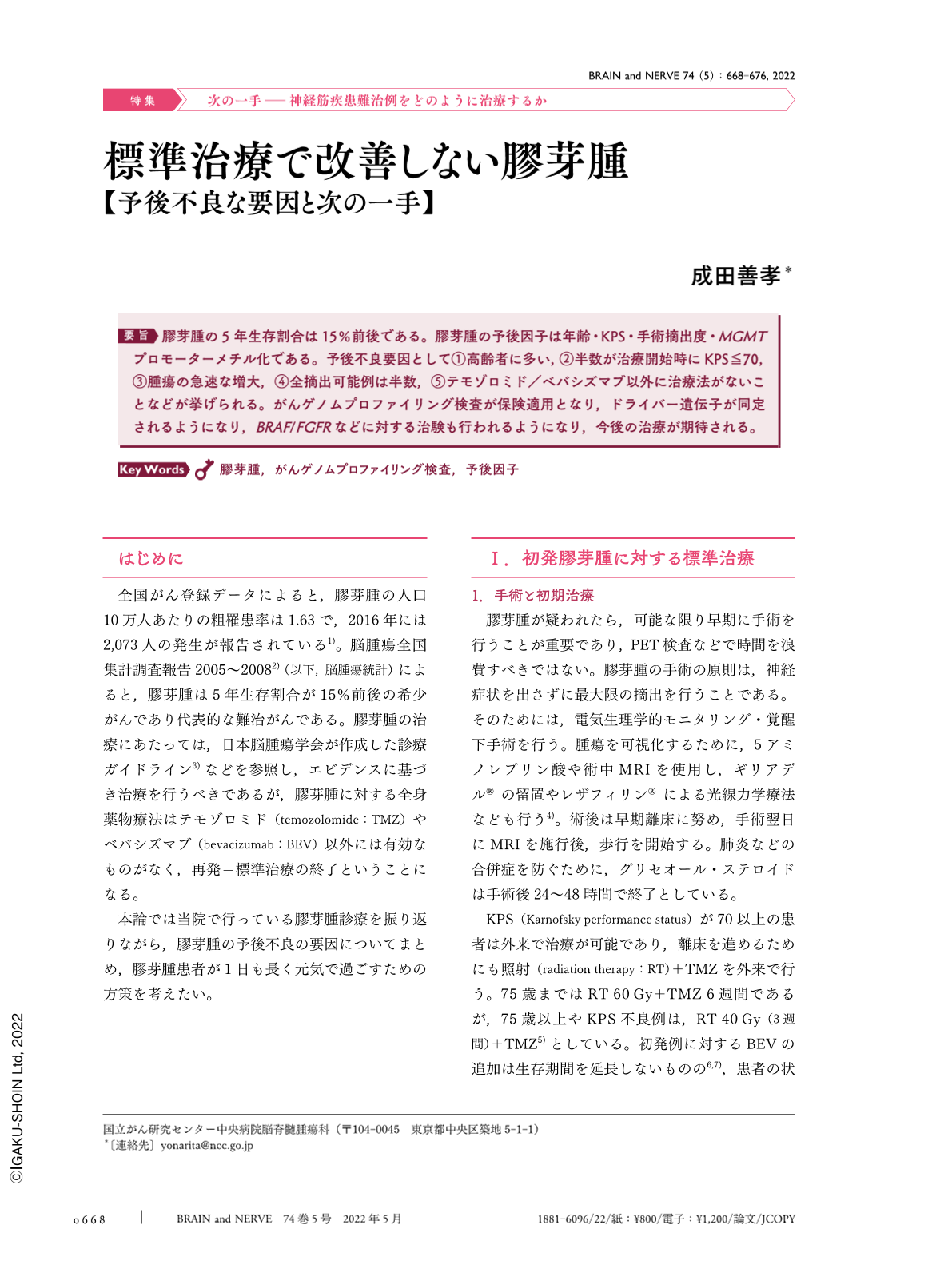Japanese
English
- 有料閲覧
- Abstract 文献概要
- 1ページ目 Look Inside
- 参考文献 Reference
膠芽腫の5年生存割合は15%前後である。膠芽腫の予後因子は年齢・KPS・手術摘出度・MGMTプロモーターメチル化である。予後不良要因として①高齢者に多い,②半数が治療開始時にKPS≦70,③腫瘍の急速な増大,④全摘出可能例は半数,⑤テモゾロミド/ベバシズマブ以外に治療法がないことなどが挙げられる。がんゲノムプロファイリング検査が保険適用となり,ドライバー遺伝子が同定されるようになり,BRAF/FGFRなどに対する治験も行われるようになり,今後の治療が期待される。
Abstract
The 5-year survival of glioblastoma (GBM) is at approximately 15%, and prognostic factors of GBM are age, Karnofsky performance status (KPS), extent of resection, and MGMT promoter methylation status. The reasons for the poor prognosis of GBM are as follows: 1)median age of onset of GBM is 68 years; 2)half of the patients have KPS≤70; 3)rapid growth of the tumor; 4)half of the patients undergo total resection; and 5)available drugs are only temozolomide and bevacizumab. The comprehensive genome profiling test is performed to analyze exome gene mutations, amplifications, deletions, and fusion gene expression in tumor tissues with a next-generation sequencer to identify tumor-specific driver genes. This test has been covered by public medical insurance for patients with cancer, including malignant brain tumors, in Japan since 2019. It detects the driver genes of GBM, such as BRAF and FGFR gene mutations, leading to clinical application by those inhibitors.

Copyright © 2022, Igaku-Shoin Ltd. All rights reserved.


